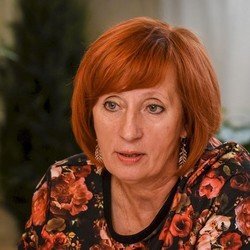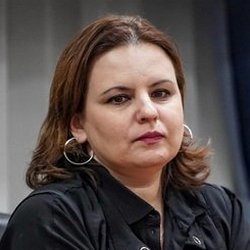Kazan restaurateurs getting ready to lose up to 70% of their income
What Kazan restaurateurs say about new restrictions, how theatres are ready for them and if the introduction of QR codes in the sector of services and entertainment can halt coronavirus
New COVID-19-related restrictions have been in force since 11 October in Tatarstan. The main novelty is that one can enter restaurants and cafes of the republic, shopping malls, gyms and swimming pools only with a QR code confirming vaccination or recovery from coronavirus in the last six months. Tatarstan shopping malls have already written a letter to Rustam Minnikhanov asking the authorities to refuse such a pass system, otherwise, this will lead to a new series of losses and bankruptcies. As representatives of restaurants claim in a talk with Realnoe Vremya, they also see many problems and are preparing a petition to send it to the authorities too. Restaurateurs evaluate the looming decline in profit at about 30-70% of the total revenue and compare the situation in Moscow in summer. Our interlocutors say that two months are enough for public catering to lose a lot of players. Theatres, of course, aren’t talking about bankruptcies but they aren’t really enthusiastic — they will have to cut the capacity by up to 50%. While chief doctor for infectious diseases of the Tatarstan Ministry of Health Care Khalit Khayertynov comments on the measures taken as necessary: the Ministry of Health Care hopes to not only persuade people into receiving a vaccine but also breaking the chain of infections in crowded places, such as shopping malls. Read in Realnoe Vremya’s report a detailed opinion of different sides.
“Better than a lockdown, but it is huge financial losses”

“From a perspective of safety, perhaps when the decision on the restrictions was made, they contemplated declaring a lockdown or taking certain restrictive measures. From this point of view, this decision is better than a lockdown,” the interlocutor of our newspaper noted. “But talking about the restaurant business, the restrictions that came into force on 11 October are almost equal to a lockdown.”
According to Sharafutdinova, it can be judged by Moscow’s experience how negative guests were about the restrictive measures in cafes and restaurants, access with QR codes and how much traffic businesses lost. At the same time, when analogous restrictions were introduced in the capital, summer terraces were still operating in cafes and restaurants, while nowadays all terraces in Kazan are closed due to weather conditions. Sharafutdinova forecasts that the restaurant business’s revenue will fall at least by a third.
“We think that our halls will get as empty as they did in Moscow. When it was unofficially announced about a new wave of coronavirus, when it became clear that the incidence was growing, we saw that revenue already had decreased. With the introduction of restrictions, we predict that it will reduce by another 30%. For the restaurant sector, this entails big financial losses,” she thinks.
The interlocutor of our newspaper thinks that if the restrictions will stay for long, a lot of public catering establishments will certainly close.
“All resources are already exhausted, a lot of loans have been taken out, there is nothing to rely on,” Sharafutdinova complains.
At the same time, according to the executive director of the Association of Restaurateurs and Hoteliers of Tatarstan, restaurants keep in touch with specialists of the Tatarstan office of Russia’s consumer rights protection watchdog to explain all clauses of the new decree of the Tatarstan Cabinet of Ministers. In particular, it is still unclear if the area of public catering establishments is considered when introducing restrictions, there are questions about the staff too. For instance, if an unvaccinated employee of a restaurant or cafe working the shopping mall can come to work after 11 October. Talking about the technology of verifying visitors’ QR codes, Sharafutdinova noted that precisely this clause doesn’t raise questions:
“A visitor shows a QR code on his account on the State Services website, we scan it and are directed to a website where it is confirmed if this certificate is verified.”
After the explanation of all clauses of the decree, restaurateurs will likely prepare a joint petition addressed to the management of the republic, Sharafutdinova promised.
“Restaurateurs want to hear explanations of the decree to certainly know the game rules. We should determine everything, how this will work in practice, how this will be controlled, how this will be done, who has the right to control, how this will be done. Only after that, resting on recommendations and explanations, we will think what petition should be sent so that our affected sector won’t die,” our interlocutor concluded.
“We are waiting for a significant fall in revenue from Monday”
Realnoe Vremya’s source representing a restaurant chain operating in Tatarstan that preferred to say anonymous says that restaurants don’t want but have to support the initiative of introducing a QR code system. However, the guests themselves will be held accountable for the correctness of the data provided. There has been a rule in force since Monday in the chain according to which guests have either been vaccinated or recovered from COVID-19 recently and can prove it. There is no third option.
“This time, the anti-COVID-19 restrictions didn’t cause any panic, rather, it was an expected activity,” our interlocutor says. “Due to this, as the statistics show, the percentage of vaccinated citizens isn’t as high as we would like it to be, we expect a considerable fall in the revenue after Monday. Consequently, this leads to the optimisation of costs and a smaller amount of taxes paid to the budget. And this isn’t good.”
The Tatarstan Association of Restaurateurs inspired by the experience of their Moscow colleagues is writing a letter with questions for the watchdog. It should be reminded that the anti-COVID-19 restrictions in Moscow had to be softened in the end for HoReCa after a number of petitions from restaurateurs...

“In Moscow, the restrictions lasted for two weeks, and restaurants there notably became empty during this time. I don’t see prerequisites for having a different situation here. But there are very important differences. Firstly, the authorities supported Moscow restaurateurs, they had bonuses in utility tariffs and taxes. While here, there is little support anyway. And the second difference is that the Moscow hospitality sphere was prepared for QR codes in advance, they developed a plan. Whereas we had three days from the issue of the decree to the introduction of restrictions. It is hard to prepare the management for action during this time. At the moment, we have more organisational questions than answers. For instance, how should we identify a person who shows even an active QR code? Legally, we don’t have the right to ask him to show the passport, how will we understand whose code he is showing without it?”
Roman Butuzov agrees that QR codes are anyway a bit better than a lockdown but he assumed that it will be tough:
“Turnouts will fall, this is unpleasant. A lot of problems and troubles are awaiting us. Of course, all this is done to stop coronavirus and refer people to vaccination. But for businesses, this is a very difficult story. We will lose a lot of guests. For instance, it will be youngsters not all of who have been vaccinated or families with children. On Saturdays and Sundays, a lot of families used to stay here. Now we shouldn’t let children, who cannot be vaccinated, let enter the restaurant. There will be financial losses. I think seeing straight, we will lose 70% during this time. And if this lasts for some two months, I think a lot of Kazan restaurants can easily close. Those who managed to survive the first lockdown may not survive these restrictions. If this lasts for two weeks like in Moscow, the sector will get through this painlessly. But if this takes more time, there will be a number of bankruptcies.”
Also, Butuzov pays attention to the fact that not only owners of businesses but also employees they are responsible for will suffer.
“Of course, we all want healthy citizens. But in my restaurants, all employees have been vaccinated. We had been discussing this for long, in the end, I managed to persuade the staff into being vaccinated. Now when they also start losing some income (for instance, waiters who strongly depend on tips), negativity, discontent will accumulate... We have to work with this too. So it will be tough now for public catering, and it is a fact.”
Theatres making sacrifices for spectator’s safety
Coronavirus is hitting not only gastronomic entertainment and joys of shopping but also culture. Museums are relatively happy: the new restrictive measures haven’t affected them. While theatres and concert halls of the republic will find it hard again. Of course, we don’t yet return to last year’s awful experience when artists and musicians were totally divested of contact with the spectator. But the restrictions will be perceptible. We should remind you that now halls can be only 50% full (but no more than 500 people).
There is a small loophole: if all theatre or concert hall workers have been vaccinated, tickets can be sold to fill 70% of the hall. However, at the same time, a spectator must provide a QR code or a certificate about the coronavirus he recovered from in the last six months, that’s to say, a 70% capacity is allowed only in the so-called coronavirus-free regime. The decree came into force on 11 October, and comments from representatives of Kazan theatres are only short, if not sad.
So the press service of the Kazan Young Spectator’s Theatre explained that now the theatre “is working to comply with the decree of the Tatarstan Cabinet of Ministers. The workers keep being vaccinated, an explanatory job is done for unvaccinated employees about the necessity of vaccination.”

“All the tickets purchased are valid. The theatre is operating as usual. Most employees have been vaccinated, and vaccination goes on. Nowadays we have sold about 40% of the tickets for October and November and keep selling them because a 50% capacity is permitted. This is by far below the average attendance rate of the Kamal Theatre. However, we understand that all this is done for our safety.”

“The arrival of another two theatres — from Moscow and Saint Petersburg — is expected. All the tickets purchased are valid. I will note that tickets have been sold for both October and November for a long time, and we published an announcement for spectators on our website on Friday that they don’t have to return the tickets. Now we will be working according to the decree selling only 50% of the seats in the hall. In this case, as we already know, Kazan citizens won’t have to show QR codes. We don’t yet want to think and forecast our financial losses. We all understand that this is necessary to prevent the spread of the infection. However, of course, we are losing income. Because it is our extrabudgetary income that is partly used to pay salaries to the workers. And it is more pleasant for the artists to see the full house...”
“The decision is aimed not against people but at the protection of the population”

“This decision is aimed not against people but at the protection of the population because in the last weeks we have seen a considerable rise in the incidence of the novel coronavirus infection. Hospitals are experiencing a colossal load in the number of hospitalised patients,” the doctor for infectious diseases explains. “To somehow influence the spread of COVID-19, restrictive measures are necessary.”
In the specialist’s opinion, the restrictive measures like QR codes to enter restaurants, shopping malls, crowded places, especially for the elderly, are crucial to stay healthy and protect lives.
“The disease is severe enough with a risk of death precisely at an old age. Unfortunately, COVID-19 has become younger — not only the elderly but also middle-aged, young people fall ill. During this wave, COVID-19 is being aggressive enough, more seriously compared to the previous ones. But these restrictive measures are introduced to reduce the risk of infections for people, and to rule out any risk in general,” the doctor says.
At the same time, Khayertynov admitted that some questions and problems remain. Particularly, one can use public transport without a QR code but cannot go to a restaurant.
“On the other hand, masks are mandatory in public places, since there are crowds in a limited space, which is a higher risk of infection, in the same tram. As for restaurants, people take their masks off when eating, and the probability of infection potentially rises in this case. This is why it is planned to introduce a pass system with QR codes,” the specialist explains.
Khayertynov commented on the restrictions on going to shopping malls this way:
“The restrictive measures are local. Shopping malls are places where a lot of people accumulate. Not only tens but also hundreds and thousands of people can be there at the same time. Despite big areas, potentially, the probability of infection when people are concentrated in one popular store will anyway be higher than in a small shop,” he is convinced.
Talking about the expected higher pace of vaccination, our interlocutor stressed:
“All health workers hope that at least now amid the growth of the incidence people will realise the seriousness of the situation, think about the necessity of vaccination. Only those who have recently recovered from the disease can be provided with real protection from the new coronavirus infection, or vaccination will help. Even if a person didn’t fall ill during the first waves, one shouldn’t think that the infection will pass him by. No! Sooner or later, the coronavirus infection can reach everybody who hasn’t had immunity to it. This is why every person must have such immunity, immunity via vaccination is better than the disease. Then the long-awaited herd immunity will appear.”